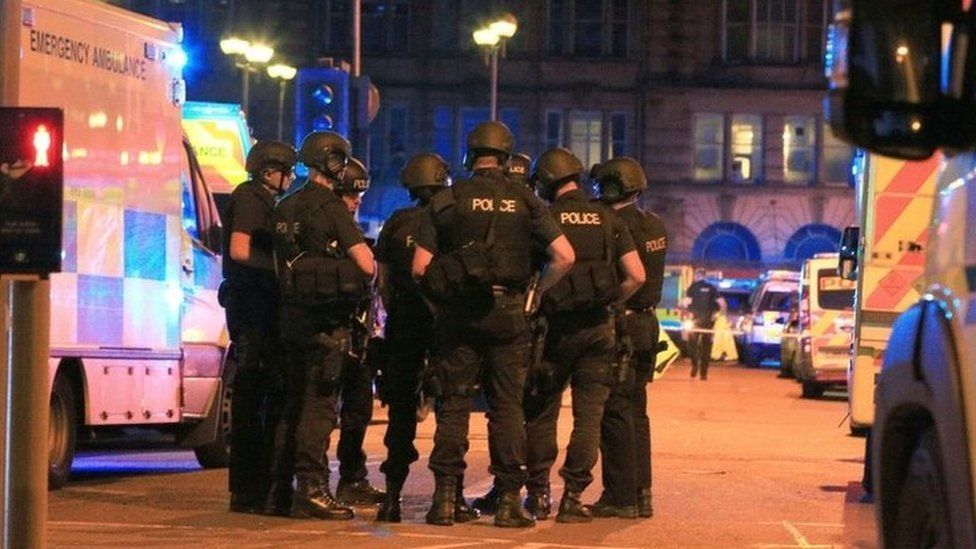
Manchester Arena suicide bomber Salman Abedi should have been identified as a threat on the night of the atrocity by those in charge of security, a public inquiry into the 2017 attack has found.
Inquiry chairman Sir John Saunders found there were missed opportunities to prevent the “devastating impact”.
He said it was likely Abedi would have detonated his device if confronted but “the loss of life and injury is highly likely to have been less”.
Twenty-two people died in the bombing.
Hundreds more were injured when Manchester-born Abedi, who was of Libyan descent, walked across the foyer of the arena and detonated the bomb at 22:31 BST on 22 May 2017.
The first of three reports published by the public inquiry, which began in September 2020, has levelled criticism at British Transport Police (BTP), the arena operators SMG, and their contracted security providers, Showsec.
Sir John said two teenage stewards did not react “as robustly and effectively as they should have” when a member of the public, Christopher Wild, raised his concerns about the bomber.
He said Mr Wild was “fobbed off”.
The inquiry chairman called this “the most striking missed opportunity”.

Other key findings:
- There was no BTP officer present in the foyer and “no satisfactory explanation” for this.
- BTP officers bear personal responsibility for failing to follow clear instructions
- Salman Abedi hid in a CCTV blindspot which had existed for a number of years. If addressed the attack could have been “disrupted or deterred or fewer people killed”
- Counter terrorism training given to stewards was criticised and risk assessments by SMG and Showsec were said to be inadequate
A range of improvements have been recommended.
Most notably Sir John has supported the introduction of new “Protect Duty” legislation to place a duty on venue operators to consider and cater for the risk of terrorist attack.
This is named “Martyn’s Law” after 29-year-old Martyn Hett who was killed in the bombing.
An 18-week consultation into the legislation was launched in February.
Figen Murray, Martyn Hett’s mother, has called for the recommendations to be acted upon “so that no other families have to go through what we have”.
The report made it clear, she said, that “venue security needs to be improved to help prevent further terror attacks”.
She said she welcomed the recommendation which made it an obligation for venue owners to “ensure sufficient protection and preparation for any potential incident”.
Ms Murray added: “We should not have to live in fear and I am determined to make this law a reality.”

